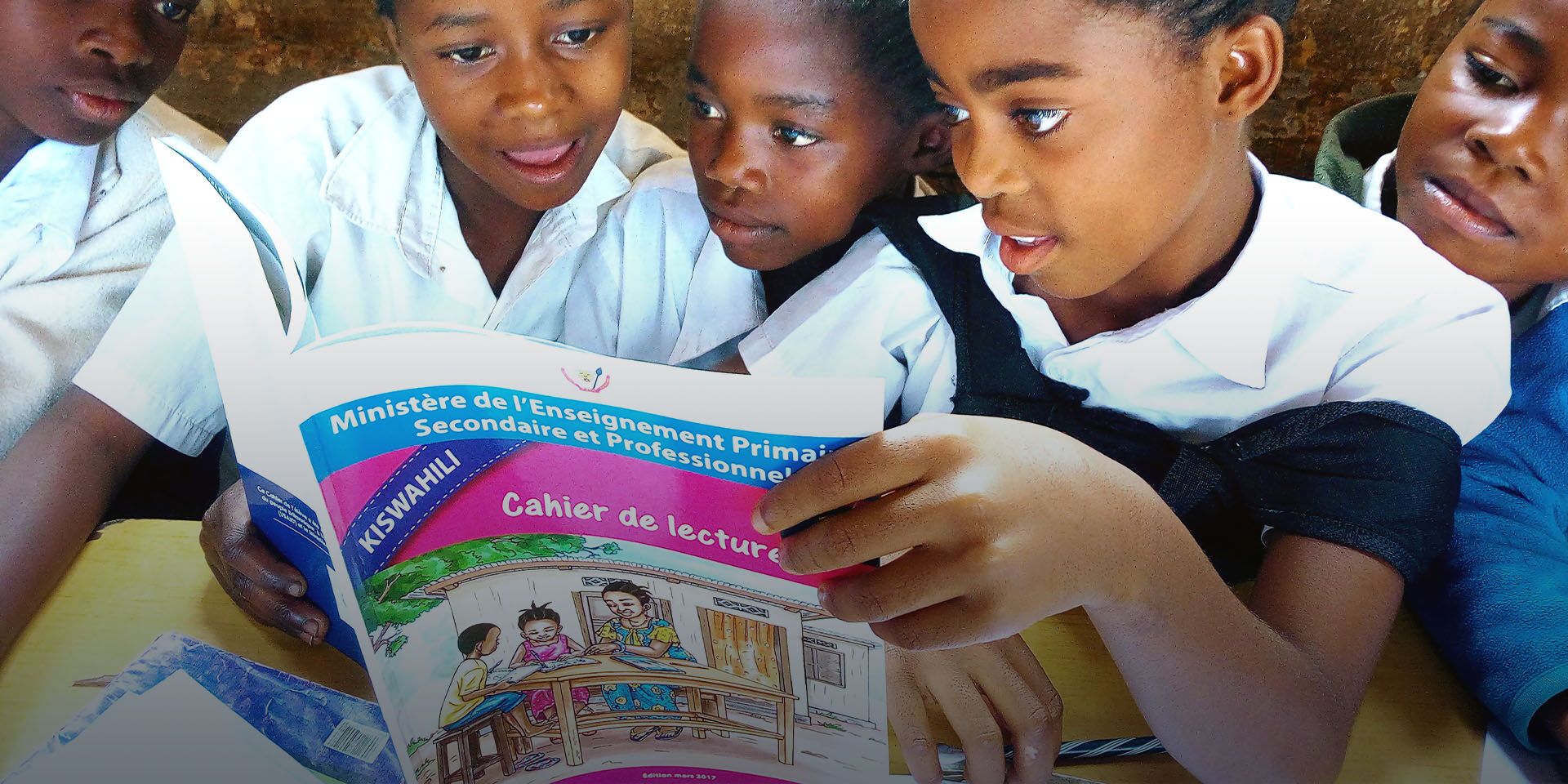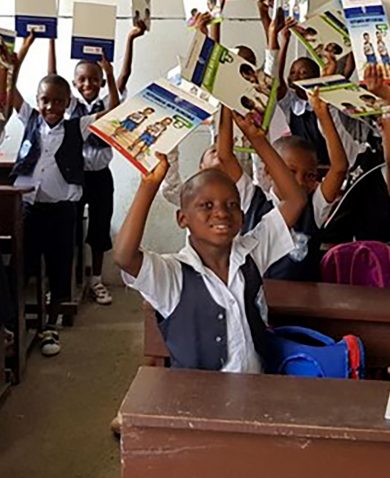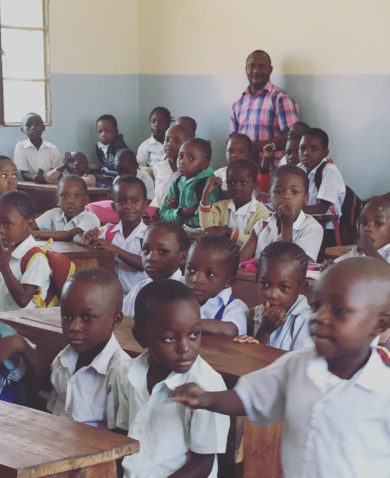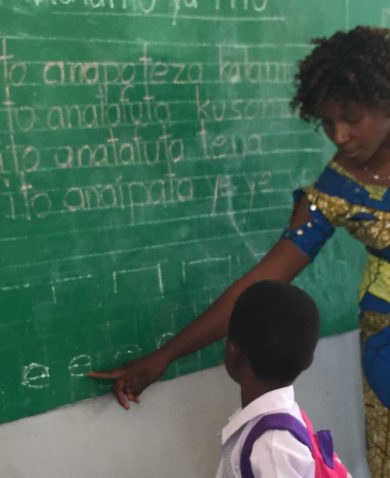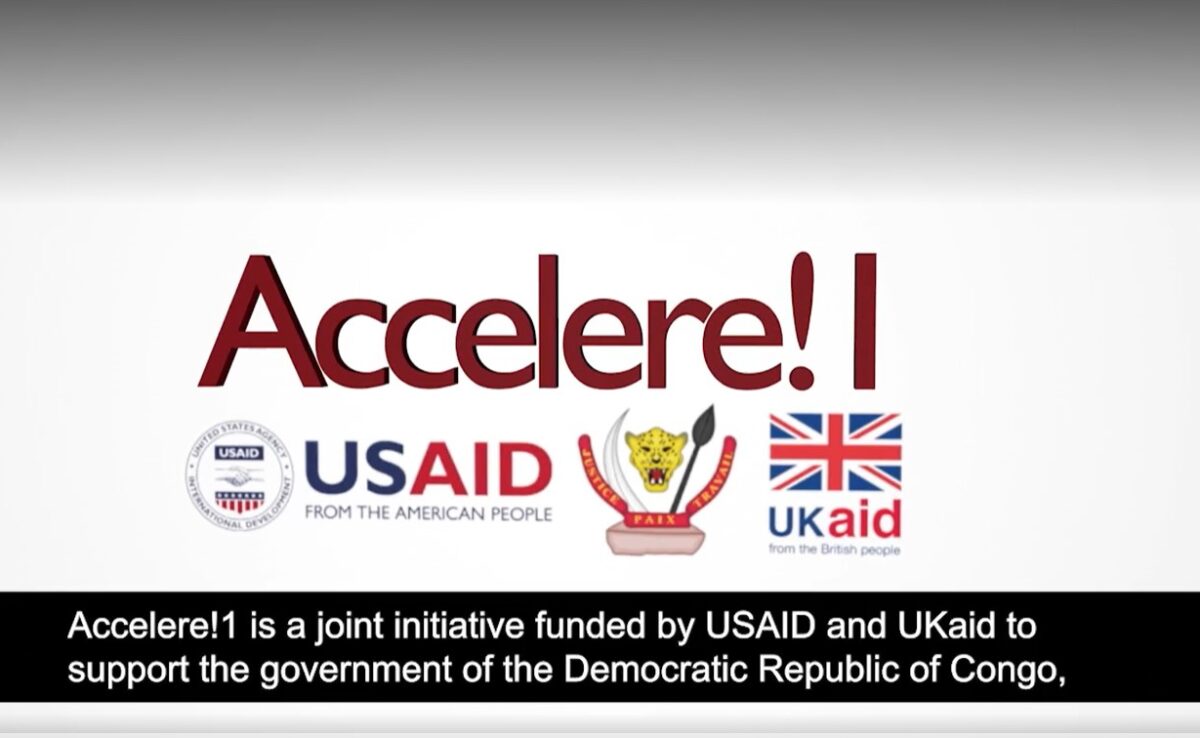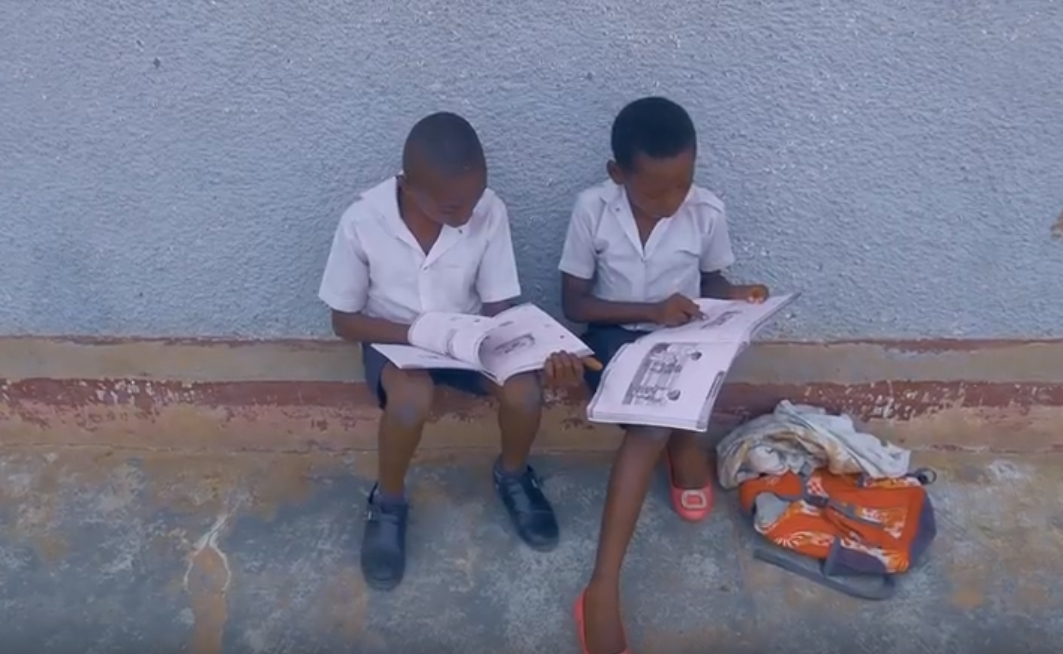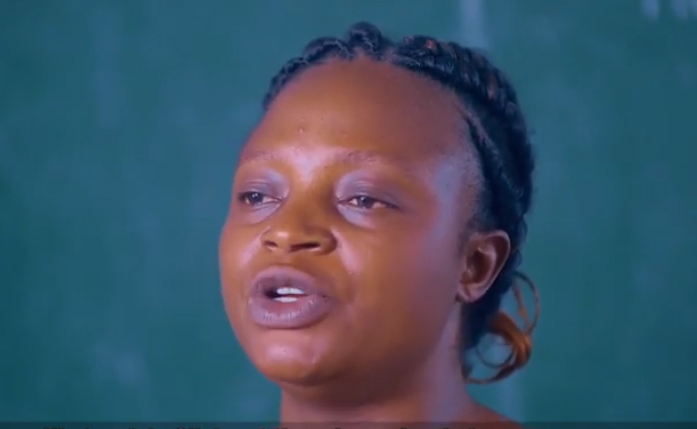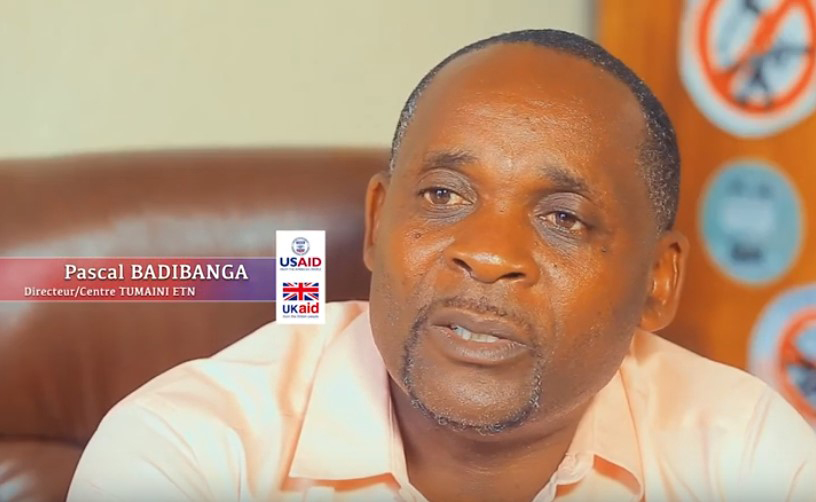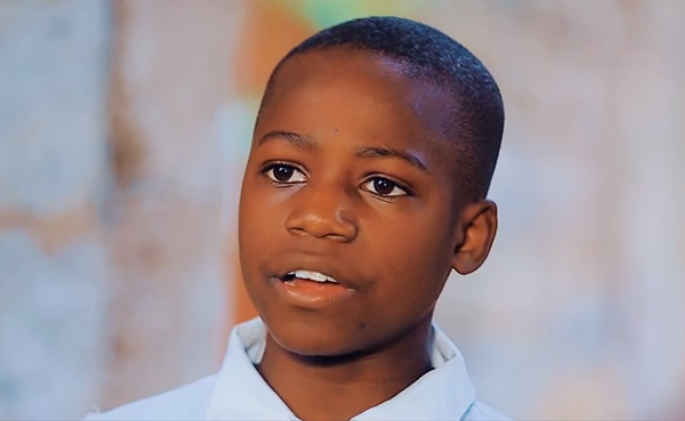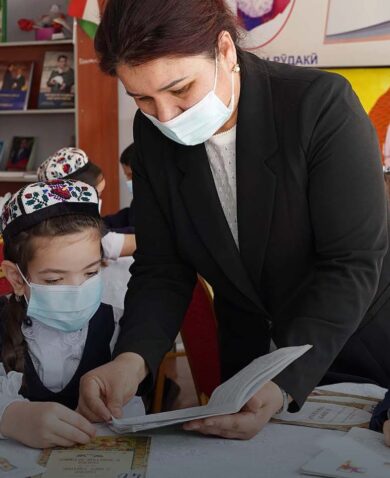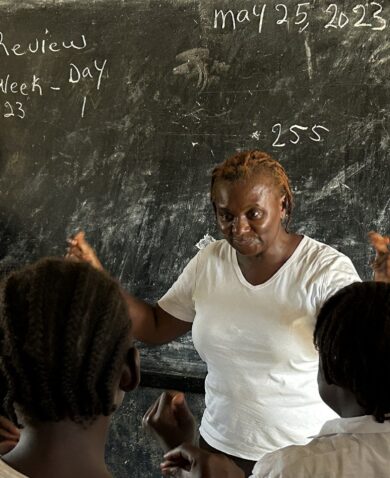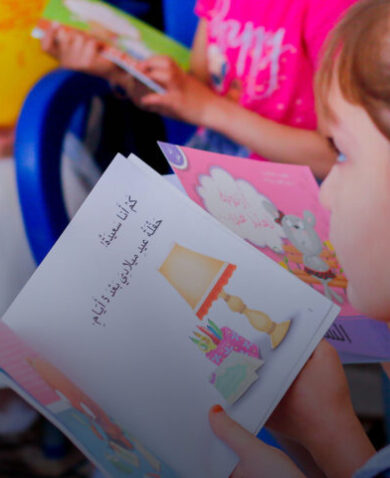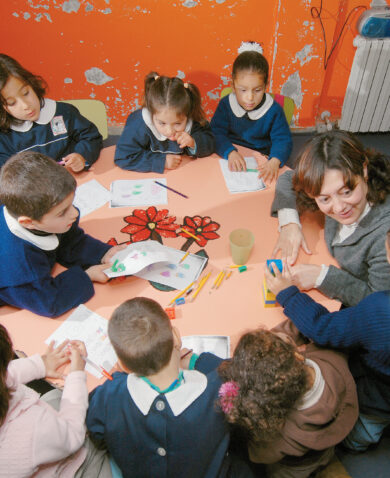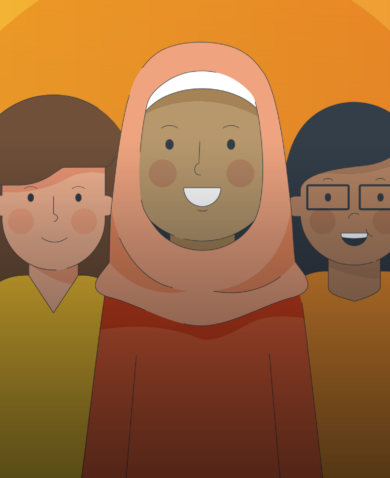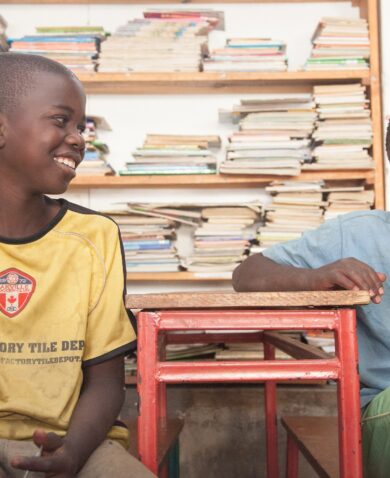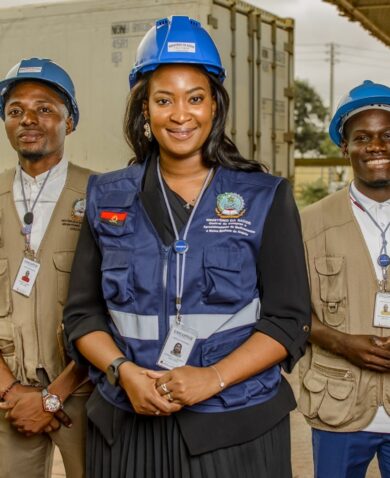ACCELERE! 1 Project
The Democratic Republic of Congo government has created a 10-year national education strategy with two goals: increasing children’s access to education and ensuring that all children master fundamental reading skills by the end of Grade 2. To support the country’s goals, the ACCELERE! 1 project (“accelerating” in French), funded jointly by USAID and UK aid, worked with students, teachers, school administrators, reading coaches, and community members across 26 subprovinces. Chemonics implemented the largest component of ACCELERE! 1, which focused on collaborating with education authorities and nongovernmental partners to increase the effectiveness of schools at the local level.

